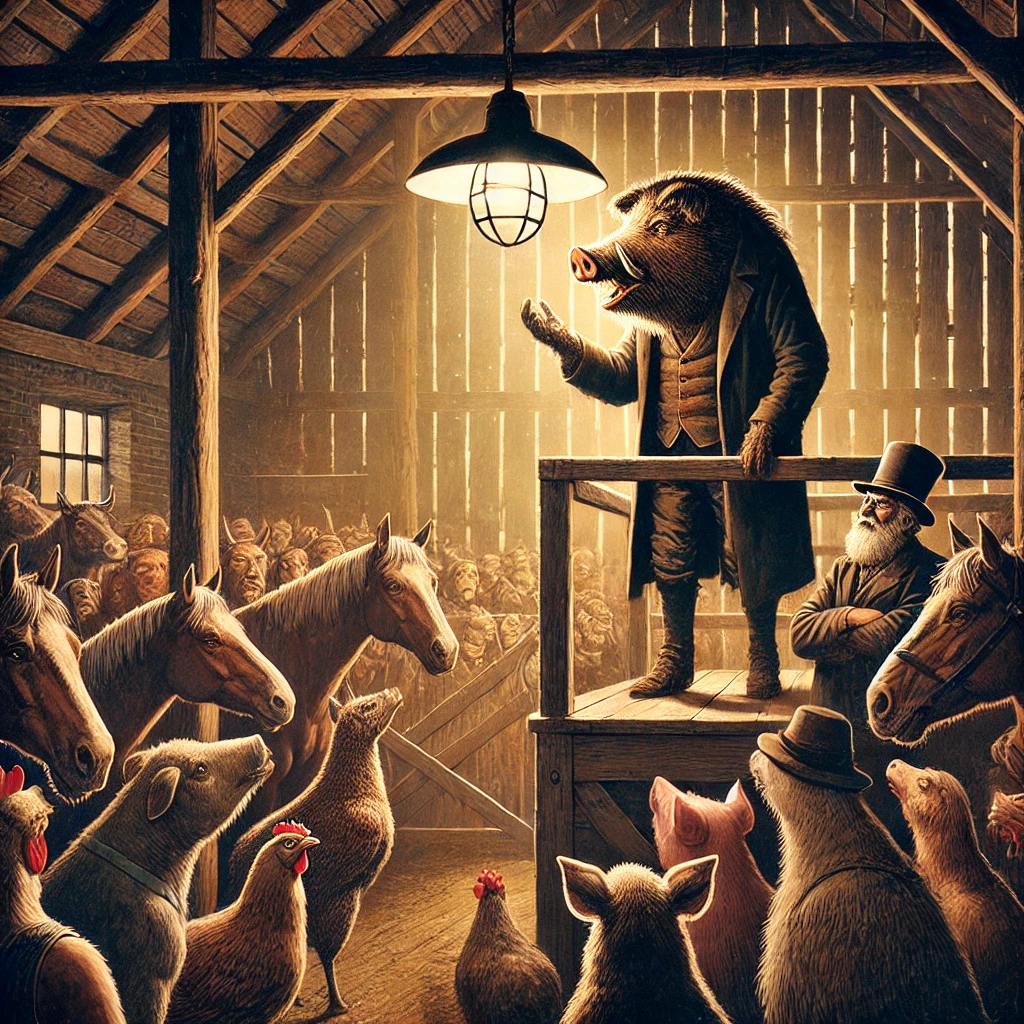Author: George Orwell
George Orwell's Animal Farm, a seemingly simple fable about farm animals, remains one of the most potent and relevant political allegories ever written. Published in 1945, its sharp critique of the Soviet Union under Stalin resonates even today, offering a timeless warning against the corrupting influence of power and the dangers of totalitarianism.
Through the lens of a farm animal rebellion, Orwell exposes the dangers of unchecked power, the manipulation of language, and the insidious ways in which utopian ideals can be twisted to serve tyrannical agendas.
This allegorical masterpiece uses animal characters to represent key figures and events of the Soviet era. Napoleon, the cunning pig, embodies Stalin, while Snowball, his rival, represents Trotsky. The hardworking Boxer symbolizes the exploited proletariat, and Squealer, the pig propagandist, mirrors the manipulative power of state-controlled media. The farm itself becomes a microcosm of a totalitarian state, complete with rewritten history, secret police (the dogs), and the gradual erosion of fundamental freedoms.
The story begins with Old Major, a prize-winning boar, sharing his dream of a world free from human oppression. He inspires the animals with his vision of "Animalism," a philosophy based on equality and freedom. "All animals are equal" becomes their mantra, fueling a rebellion that successfully drives out the tyrannical farmer, Mr. Jones.
Initially, the farm thrives. The animals work together, enjoying the fruits of their labor and basking in the glow of newfound autonomy. However, this idyllic state is short-lived. The pigs, led by the cunning Napoleon, gradually consolidate power. Squealer, Napoleon's propagandist, skillfully manipulates the other animals with rhetoric and fear, rewriting history and twisting the principles of Animalism to justify the pigs' increasingly privileged position.
The Seven Commandments, the foundational principles of Animalism, are subtly altered, one by one. "All animals are equal" eventually becomes "All animals are equal, but some animals are more equal than others." Napoleon uses force and intimidation, aided by his vicious guard dogs, to silence dissent. The other animals, like the hardworking Boxer the cart-horse, are exploited and ultimately betrayed.
Animal Farm is more than just a historical critique of Stalinism. Its themes of power, corruption, and the manipulation of language are universally applicable. The story serves as a cautionary tale against the seductive allure of utopian ideals and the ease with which revolutions can be hijacked by those seeking power. It reminds us to be vigilant against those who promise equality but deliver only tyranny.
The book's ending, where the pigs walk on two legs, carry whips, and even begin trading with humans, is chilling. It underscores the complete betrayal of the revolution's original principles. The animals, peering through the farmhouse window, can no longer distinguish the pigs from their former oppressors, highlighting the cyclical nature of oppression.
In a world where political discourse is often manipulated and truth is increasingly contested, Animal Farm remains as relevant as ever. It compels us to question authority, to scrutinize the language of those in power, and to remember that freedom requires constant vigilance. The pigs' dream of absolute power may seem like a distant fable, but the seeds of that dream can sprout anywhere, anytime, if we are not careful. Animal Farm serves as a timeless reminder of the importance of critical thinking and the enduring struggle for true equality.
